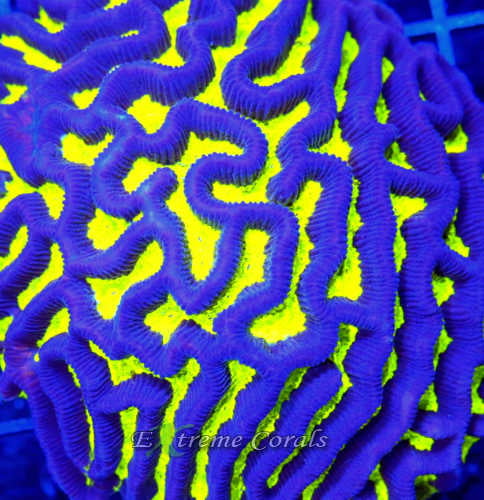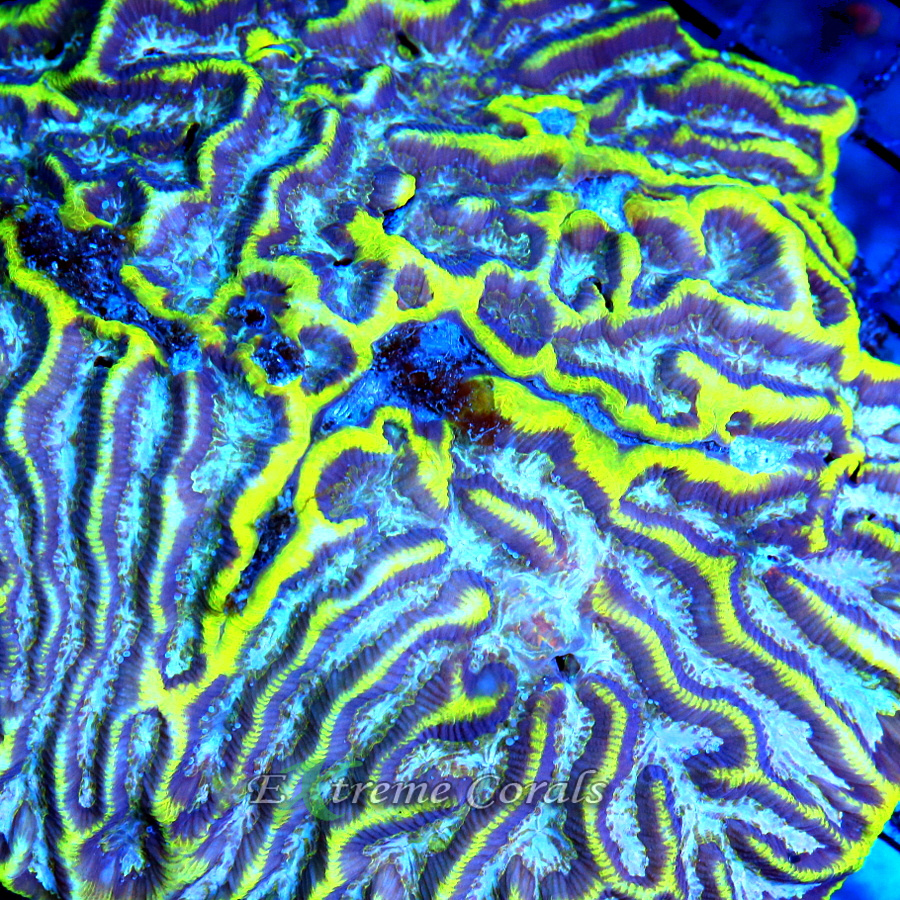Extreme Corals News and Updates
Top Tips for Feeding and Nurturing Healthy Brain Corals
Unlocking the Secrets: A Guide to Cultivating Healthy Brain Corals
Dive into the world of brain corals with our comprehensive guide, where we explore the significance of these unique organisms in reef ecosystems. From understanding their habitat needs to mastering feeding techniques, we delve into the essentials of nurturing healthy brain corals. Discover top tips for maintaining water quality, promoting growth, and addressing potential health issues, ensuring your marine aquarium thrives with the beauty of vibrant brain corals.
by scott Shiles • February 23, 2024
Understanding brain corals and their importance in the reef ecosystem
Brain corals are essential components of the reef ecosystem as they provide shelter and habitat for a wide variety of marine life. They are crucial for maintaining the health and balance of the reef. Brain corals are named for their resemblance to the human brain and come in different shapes, sizes, and colors. They are known for their slow growth rate, averaging about 1 to 25 millimeters per year, which makes them particularly vulnerable to environmental changes. Understanding the significance of brain corals in the reef ecosystem can help us appreciate the delicate balance of marine life and the impact of human activities on coral reefs.

The ideal lighting and water conditions for brain corals
Brain corals thrive in moderate to high lighting conditions, preferably with indirect sunlight to simulate their natural environment. The ideal water temperature for brain corals ranges from 75°F to 82°F. Additionally, maintaining water alkalinity between 8-12 dKH and calcium levels between 380-450 ppm is crucial for their health. Providing a stable and suitable environment is essential for the growth and wellbeing of your brain corals.
Proper feeding techniques for brain corals
Brain corals are filter feeders that benefit from regular feeding to promote their growth and health. Here are some top tips for proper feeding techniques:
- Feed brain corals with small and frequent amounts of food to prevent overfeeding and maintain water quality.
- Offer a variety of foods such as phytoplankton, zooplankton, and commercial coral foods to ensure balanced nutrition.
- Target feeding using a turkey baster or a coral feeding tool can help deliver food directly to the corals, increasing their nutrient intake.
- Avoid aggressive feeders from stealing food from brain corals by creating barriers or feeding them separately.
- Monitor the corals' response to different types of food and adjust feeding techniques accordingly to ensure optimal health and growth.
Common mistakes to avoid when feeding brain corals
When feeding brain corals, it's important to avoid certain common mistakes to ensure their health and well-being. Here are some key points to keep in mind:
- Avoid overfeeding, as it can lead to water quality issues and negatively impact the corals' health.
- Do not use foods that are not suitable for brain corals, such as foods high in phosphates or nitrates.
- Ensure that the food particles are of an appropriate size for the corals to consume effectively.
- Avoid feeding during the night, as brain corals primarily feed during the day.
By being mindful of these common mistakes, you can help to maintain the health and vibrancy of your brain corals. Remember, the well-being of your corals depends on your attention to their feeding habits.
Nurturing a healthy environment for brain corals
Creating a healthy environment for brain corals is essential for their well-being. Here are some top tips to help you nurture your brain corals:
- Maintain Stable Water Parameters: Brain corals thrive in stable water conditions, so it's crucial to monitor and maintain consistent temperature, pH levels, and salinity.
- Provide Adequate Lighting: Ensure that your brain corals receive sufficient light to support their photosynthetic processes. LED lights are a popular choice for providing the right spectrum and intensity.
- Regular Water Flow: Brain corals benefit from moderate water flow to help them receive essential nutrients and oxygen while preventing the buildup of detritus.
- Avoid Overfeeding: Feed your brain coral sparingly to prevent overgrowth of algae and maintain water quality.
- Monitor for Signs of Stress or Disease: Keep a close eye on your brain corals for any signs of stress, disease, or predation. Address any issues promptly to maintain a healthy environment.
By implementing these tips, you can create a nurturing environment that supports the growth and vitality of your brain corals.
Tips for maintaining water quality and stability
Maintaining water quality and stability is essential for the health of your brain corals. Here are some tips to help you ensure your corals thrive in a stable environment:
- Regularly test water parameters such as salinity, temperature, pH, ammonia, nitrites, and nitrates to ensure they are within the ideal range for brain corals.
- Consider investing in a reliable protein skimmer and a high-quality filtration system to help remove waste and maintain water clarity.
- Regular water changes are crucial to replenish essential elements and remove any accumulated pollutants in the aquarium.
- Avoid overfeeding your fish, as this can lead to excess nutrients in the water, which may negatively impact coral health.
- Keeping a consistent lighting schedule can also contribute to stable water conditions and promote the well-being of your brain corals.
By following these tips, you can help maintain optimal water quality and stability for your brain corals, ensuring a healthy and thriving reef environment.
Monitoring and addressing potential health issues
When caring for brain corals, it's important to keep an eye on their health to ensure they thrive in your aquarium. Here are a few tips for monitoring and addressing potential health issues:
- Regularly check for signs of discoloration, tissue erosion, or abnormal growth patterns on the coral.
- Test water parameters such as temperature, salinity, and pH to ensure they are within the optimal range for brain corals.
- If you notice any changes in behavior or appearance, consider consulting with an experienced aquarist or a professional to address any potential health issues promptly.
By staying vigilant and addressing any potential health issues early on, you can help ensure the well-being of your brain corals in your aquarium.
Incorporating natural supplements for brain corals
Adding natural supplements can benefit brain corals by providing essential nutrients and promoting their overall health. Consider incorporating supplements such as phytoplankton and zooplankton, which are rich in vitamins and minerals that can support the growth and vitality of brain corals. Additionally, utilizing calcium and magnesium supplements can help maintain proper levels of these critical elements in the aquarium, contributing to the well-being of the corals. When introducing supplements, it is important to carefully follow dosing recommendations to avoid overfeeding and potential negative effects on water quality.
Promoting growth and reproduction in brain corals
Brain corals thrive in stable and nutrient-rich environments. To promote their growth and reproduction, it is essential to provide them with proper care and attention. Here are some tips to help brain corals flourish:
Sustaining the beauty and vitality of brain corals
To ensure the beauty and health of brain corals, it's important to maintain a stable water environment with consistent temperature and quality. Regular water testing and maintenance are essential to support the growth and vitality of brain corals. Additionally, providing proper lighting and nutrient levels, along with regular observation for any signs of stress or disease, will help sustain the vibrancy of brain corals in your marine aquarium.

